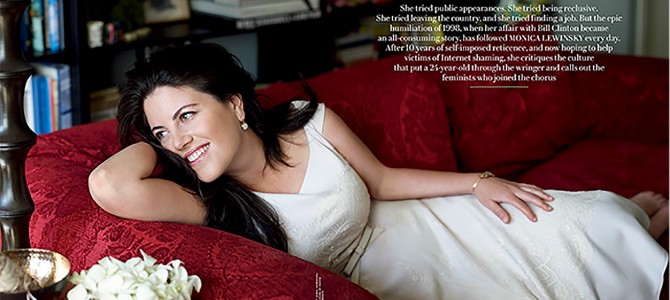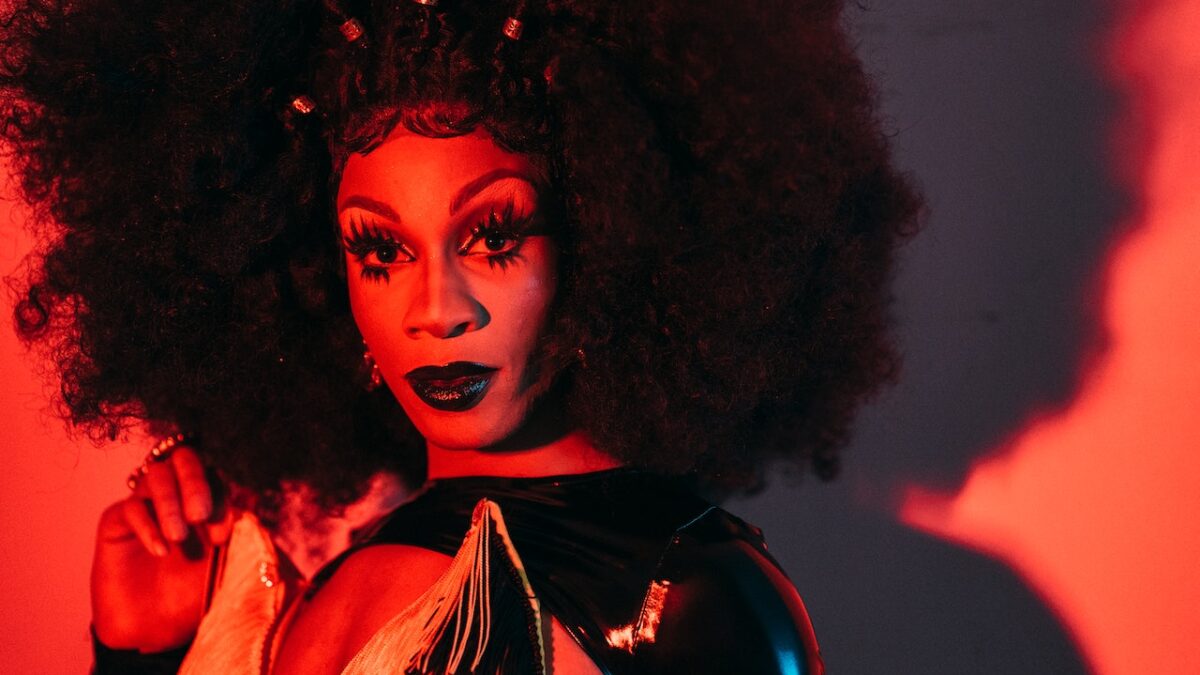
Monica Lewinsky understands something about feminism and gender equality that many women still do not: she believes in choices. Despite the obvious problems of engaging in a relationship with her married boss, and president of the United States, Lewinsky clearly recognizes her own free will in participating. Increasingly, however, feminists today act as if women don’t have choices and too often fashion women as objects rather than agents.
When I was in graduate school, pretentious students used the word “agency” a lot. “Agency” is just a fancy term for having control over your own life and circumstances. It is a useful concept when referring to slaves living in the early republic, or those living under Jim Crow laws, who managed to carve out their own culture despite horrifying conditions. Women’s studies literature adopted the term to praise women who resisted the patriarchal culture and discrimination through their actions, both individually and as a part of a group.
Academics tend to view “agency” through a Marxist lens – oppressed classes struggling against exploitative capitalist systems – but there is something undeniably positive, even American, in the idea that even under even the most challenging of circumstances, individuals have the ability to affect the world around them. And there is something deeply important to recognizing this power and the humanity that the disadvantaged and oppressed retain under terrible circumstances.
Today there has been a paradigm shift in the way feminists and Progressives conceive of women and their choices. Ironically, modern feminists have reconstructed women as helpless, child-like victims and consider any recognition of female power as a cover for oppression. Today the “ideal” of woman is as a subject, not an agent.
Three examples stand out: 1) The obsession with the “wage gap”; 2) the newly minted “rape statistic;” and 3) the refashioning of Monica Lewinsky as heroine.
At the heart of the “War on Women” rhetoric is the false “wage gap” statistic that women only earn 77-cents for every dollar a man earns. While even White House flacks know the 77-cent statistic is the crudest form of comparing apples to oranges, and that women’s choices – from college major to time spent out of the workforce to willingness to negotiate salary – are the real cause behind the small pay disparity, liberal women’s groups perpetuate this lie.
Progressives point to the “wage gap” as a sign of persistent discrimination, a society that is antagonistic toward women, and as evidence of the need for greater government oversight. They suggest that nothing a woman chooses to do can set things right. If they recognize women’s choices at all, they imply that their decisions were somehow incorrect or substandard because women made those decisions under the influence of patriarchy and cannot be trusted to have been acting in their own self-interest.
That’s not only insulting, but also discourages women from acting as true agents and considering how the choices they make will define their futures. There are, in fact, many concrete ways a woman can improve her chances for success in the workplace. If salary is the most important thing to a woman, she needs to consider her decisions early on: choose her college major carefully, don’t take too much time out of the workplace after having children, be willing to forfeit a flexible schedule.
Today women in America have more “agency” than ever before, and the small “pay gap” results from their acting on a multitude of choices. Yet liberal feminists strip women of their agency by putting the “solution” – the power – in the hands of the government and misleading women that more legislation will somehow solve their problems.
The same “agency-less” attitude drives the newest Progressive project: the inflated college sexual assault statistic. According to the White House and their feminist allies, one-in-five women on college campuses have been sexually assaulted. While there are many reasons to be suspicious of this number, the Manhattan Institute’s Heather MacDonald recently suggested that if it were true, it would represent a “crime wave of unprecedented proportions.” Not even in the city of Detroit, which is infamous for its dangerous streets, have we seen anything remotely close to such a staggeringly high number.
Yet young women are not fleeing college campuses in fear for their safety. Why is this?
It’s because proponents are exaggerating the threat, too often confusing regretful sexual decisions made while under the influence of alcohol or drugs with actual rape.
The National Intimate Partner and Sexual Violence Survey (NISVS) of 2007, used as the basis for the White House report on campus rape, conflates many serious variables. For instance the survey combines instances when someone “voluntarily consumed alcohol or drugs” with situations when one was “given drugs without your knowledge or consent.” Certainly there’s a big difference between choosing to drink in excess and a perpetrator surreptitiously adding Rohypnol – or the “date rape drug” – with the intent to rape. Similarly, the survey combines women who were sexually abused while drunk with those who were “passed out.” While neither is OK, the former presumes the woman had diminished capacity to provide consent, while the other suggests the woman was truly incapable of providing consent.
This is not an attack on women who have been harmed, nor is it a form of “slut shaming.” Like my feminist counterparts, I agree that sex must be consensual and that men should never assume anything. Undoubtedly some women make decisions that they regret, and certainly some men take advantage of women, and they must be held responsible. But by the same token the goal shouldn’t be exaggerating statistics to justify more government dollars or to pass new legislation that fashions women as victims and men as abusers. The goal ought to be to encourage women to consider themselves as active participants with choices, so they understand there is a lot they can do to keep themselves safe.
Finally, the return of Monica Lewinsky to the headlines via an article she wrote for Vanity Fair sheds light on this new strain of feminism without agency. Despite Lewinsky’s posture that she engaged in “a consensual relationship,” clearly former President Bill Clinton—a married, full adult man, to say nothing of his position of power – shares the majority of blame for having a relationship with a star-struck, 19-year old intern.
Still, today it seems Lewinsky has more clarity on her behavior than many feminists. As soon as the Vanity Fair article emerged, the conversation turned to one about whether or not “feminists” failed Monica. Certainly feminists at the time ignored the Democratic President’s misbehavior and viciously attacked Lewinsky. The New York Times’ Maureen Dowd is the name that comes to mind for describing Lewinsky as “a ditsy, predatory White House intern.”
That depiction was nasty and exposed a double standard within feminism, but the re-emergence of Lewinsky as an innocent, agency-less, victim is also off-the-mark. The new message is that Lewinsky was not responsible for her actions. That she ought to have been coddled by other women, when Lewinsky herself acknowledges she was fully capable of making decisions.
So why have feminists today suddenly turned their backs on the idea of “agency?” Why have progressive women who once saw “agency” in every dissatisfied housewife who left the domestic sphere, suddenly become so intent on stripping women of any functional power at all (except, of course, on the issue of abortion)?
Ultimately we do women a grave disservice by ignoring their agency. Acting as if women don’t have choices refashions them as children and discourages them from recognizing and seizing the incredible opportunities before them. Feminists have likely embraced this logic since it helps them sell bigger government as the answer to all of women’s problems. Yet not only does more government guarantee worse economic, social, and cultural outcomes for women, it turns the very basis for feminism on its head.
Today Helen Reddy’s “I am Woman, Hear Me Roar” – in which women seized control of their own lives – has simply faded into a faint whimper of victimhood.
Sabrina L. Schaeffer is executive director of the Independent Women’s Forum.









